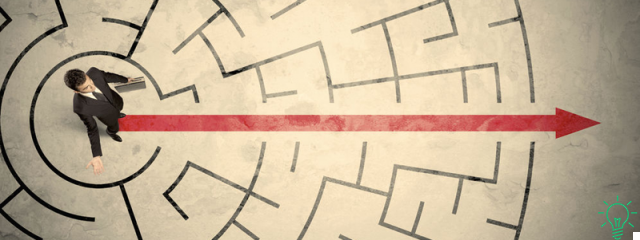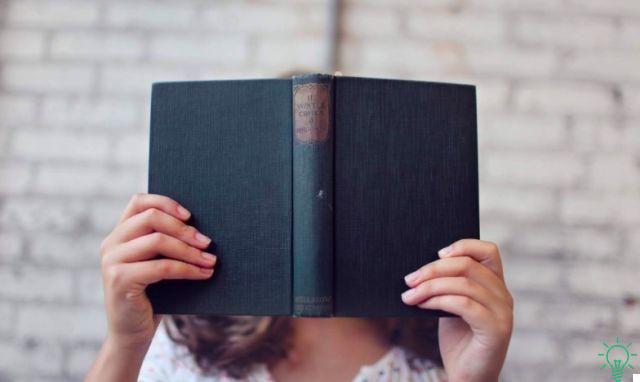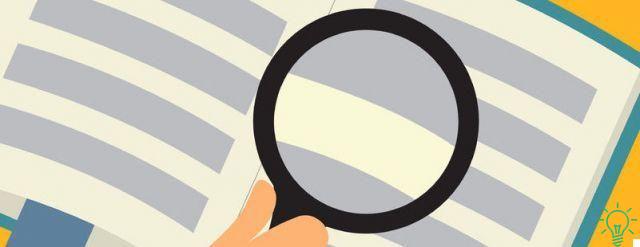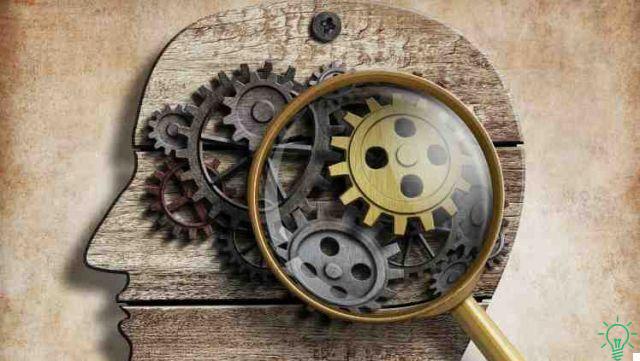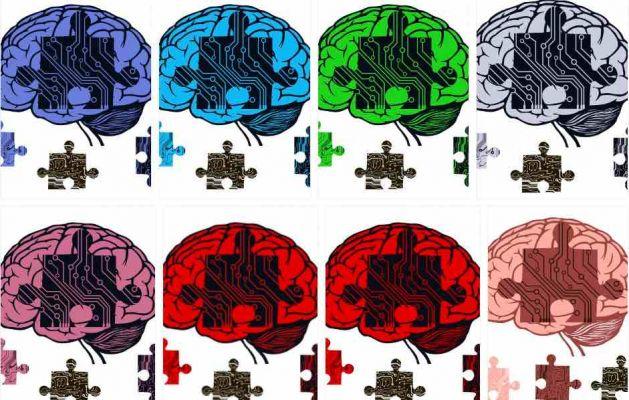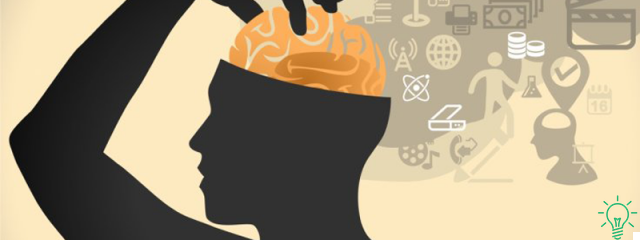
When looking for methods for improve memory, we often find ourselves suspended between two extremes.
- On the one hand, generic and very simplistic advice: sleep more, chew chewin-gum (that's right! It seems to positively stimulate the hippocampus in the brain), eat red fruits, exercise. Some of them work, some of them are absolutely a good rule of life, but it is not that by themselves they make you do who knows what more mnemonic performance.
- On the other, complex system, long to learn and not easy to apply: the technique of the loci, the phonetic conversion, the alphanumeric file and all the other various applications and variants of the actual memory techniques. They are certainly very powerful, but not everyone has the real desire or need to study.
The reason for this polarization is simple:
- The first kind of thing those who know very little about memory speak to you, and write articles just to fill space in their blogs. Whether it's losing weight, finding a boyfriend, or having a better memory, they'll always tell you to sleep and walk more (right advice, sure, but very general).
- Seconds speak to you instead, the practitioners of the techniques themselves, for obvious personal interests and inclinations, leaving out, however, a little too often the dark side of the same: which are tiring and long to learn.
So I decided to make an article that goes to fill the void in between these two approaches.
That is, an article that you talk about methods to improve memory that are at the same time:
- Simple (although not as simple as chewing chewin-gum)
- Effective significantly (despite not having the power of real techniques)
But, above all, that they are immediately (or almost) applicable. That is, you can start trying them this afternoon, without the need for great preparation.
1 - View
In the study as in everyday life, we are used to verbalizing any type of information.
Which, from an evolutionary point of view, makes little sense.
In fact, we have spent millions of years remembering and processing information above all in the form of images, sounds, sensations.
While writing, reading and speaking are all very recent activities.
For this reason, our brains are much more efficient at remembering images than the words that represent them.
Not convinced? Watch a movie for two hours and think about the amount of details you are able to remember: faces, clothes, places, facts, events ... even with a poor visual memory you are able to remember much more than reading two hours of a book.
So, from today, try as often as you can to transform information into images, perhaps making them interact with each other, just like in a movie.
2 - Be careful
It would seem obvious how to "walk and sleep more", but in reality it is not so obvious.
Have you ever gone to a party where you are introduced to someone and after not even a minute you can't remember their name?
Incredible isn't it? And it's certainly not a memory problem! In fact, it's not that you don't remember it, it's that you haven't learned it at all, as if you haven't even heard it. (See also my article on remembering names for specific techniques.)
In fact, while your new friend was telling you his name, perhaps shaking your hand, you were unconsciously and completely focused on observing his appearance and the non-verbal messages he sent you.
Incidentally, for a very similar reason to that seen in the previous point: your Neanderthal brain focuses on what it considers in some way. useful for survival.
And the looks or body language of a stranger you just met are more so than their name.
So, you wanted to memorize the name but your brain was busy with something else.
Moral of the story: even when it comes to presentations, if you have to memorize something, first of all make sure that that something has the unconditional attention of your brain.
How to do?
Count to 3, take a deep breath, and "talk" to your brain for a moment telling it what to watch out for at that moment. Indeed, just to follow the "view" rule, imagine yourself scolding him. In most cases, that should be enough to coax his Neanderthal head.
Go to Amazon to see my manual
3 - Organize the information
It is the reason why so many successful students find it it is essential to make schemes.
Organizing something is anything but a trivial and mechanical activity.
It is in fact:
- Understanding various information
- Give it a hierarchy
- Grasp the elements of connection and the differences
- Eliminate what is not needed
In short, a work of analysis that inevitably leads to two equally important results:
- Best retention some data
- Best representation (or, in less technical jargon, “presentation”) of the data
What does better representation mean?
Which, compared to the original situation, the information is more concise and the relationships between them clearer.
This fact also allows for a better and faster review, in turn crucial for improving memory.
So, get used to making patterns (and the more synthetic, the better) -> See how to do cascading patterns really well.
4 - Use deferred repetition
Here we trespass a bit in memory techniques, even if the delayed repetition, and the flashcards, which are a tool of it, do not require much preparation to be implemented.
You simply have to, instead of making big "binges" of studying a single subject, try to do multiple sessions, shorter, and at some distance one from the other.
For example, if you have to memorize one hundred foreign words in 3 hours, in the medium term studying them one hour a day gives better results than not doing all 3 hours in a single session.
And don't think, since you are used to studying nights before exams, that this is not valid for you. The greater effectiveness of delayed repetition is scientifically proven.
The difficulty of improving memory with this technique (perhaps the least immediate among those seen today) is:
- In finding the optimal repetition intervals for any kind of info
- In build the flashcards same.
Keep in mind, however, that flashcards are not essential: you can do extended repetition even without them.
If you want to incorporate them into your study method, I advise you to proceed step by step, starting only with small groups of flahscards, reserved for the most difficult / important info. After a little practice you can extend them to everything else.
If instead of using pen and paper you prefer software and apps, I definitely recommend using Anki.
5 - Compare the comparable and the incomparable
If one thing you don't know looks like to something you know, you can only remember it better.
Obvious isn't it?
But even if it is one thing completely opposite to another you know you can only remember it better.
And therefore, to improve memory, many times it is enough to simply remember through things you already know.
Now, believe it or not, the world is full of similarities and similarities between apparently very different things.
And it's also full of things that are diametrically opposed to each other.
So every time you have to remember new information, dig into your head looking for something that looks like him, or that doesn't look like him at all.
If you find it, you will have created a very stable memory.
To give you an example, a few days ago I briefly explained the functioning of the cardiovascular system to an electrical engineering student: through a series of analogies on resistances, electrical power, phases, etc., it was not at all difficult for him to understand and remember it.
6 - Try to guess
This method to improve memory I started using it after studying how the Pimsleur method works, a very effective language learning system.
In Pimsleur the student is often asked to produce a correct sentence (or word) in the target language, even without having explained to him how it should be.
The student must be able to do this by retrieving in the memory models of sentences / words previously acquired (toh, here comes the "compare the comparable" just seen).
It is a very natural process: children for example, when instead of "Potei" they say "Possi", they do just like in Pimsleur: they guess on the basis of structures that seem similar to them.
And the fact that every now and then, as in this case, they make a mistake is certainly not a problem, quite the contrary! If there is an adult who gives them feedback right away, they instantly improve their memory of the correct version of the verb.
So, when you study, try to often guess the information by deducing it from the previous ones:
- If you can manage it, consolidate the logical process which led you to guess, and thus improves the memory
- If you can't, the fact of being wrong will make you memorize better the right version.
7 - Practice active recall
Active recall is the attempt, made shortly after acquiring a long series of information, to remember it.
Many use it in one of its own wrong version: that is, trying to repeat while peeking notes and book. This makes it easier, but decreases its effectiveness.
The real active call is done when the book is closed, and therefore at the beginning you will feel like you have absolute emptiness in your head.
If you do anyway the effort to try to remember, one after the other some information will begin to emerge, which will then be pulled along by others, and then by others (also exploiting the mechanism of the guess just seen).
And this will improve your memory in a monstrous way, not only with respect to what you are studying, but in general: you will get used to delving into the depths of your brain.
Improve memory step by step
The methods for improving memory that we have just seen are all immediately usable, and can give you results right away.
But the best part comes when you start using them continuously.
Yes, because it is easy to say "visualize", "make patterns", "use delayed repetition" etc.
The reality is that these techniques, like everything, can be used with different degrees of mastery.
For example, the first few times you will visualize slowly, with not too vivid images, little movement, and you will get some results, even if perhaps not exceptional.
And then, as you continue to use the technique, your images will be more and more effective and memorable.
And the same for "guesswork", "active recall", "delayed repetition", and so on.
To help you improve your memory, I have littered the article with useful links that will allow you to learn more about them.
But first, there are some final things I want to tell you, and which I hope will help you not only to understand these techniques thoroughly, but to grasp the very essence of a better memory.
How to improve memory: conclusions.
I don't know if or if you have noticed, but in my opinion there are two very interesting concepts that the different strategies we have seen have in common:
Improving memory is easier if it is "natural".
This fact is particularly evident in the display, which is the system by which we have been memorizing for millions of years.
But also in the "take a guess“, Which is what children do to deduce the grammar of their mother tongue.
Or in the "be careful“, Because again the brain has always focused on what it considers useful for survival in some way.
And, albeit to a lesser extent, in all the others.
This brings me to an empirical observation that I have made many other times in my life: often, when we use our brain in a “natural” way“, We get better results because we make it work according to the logic of millions of years of evolution.
And so it works more effectively.
Improving memory takes effort, and that's where the results come from.
Visualize something written, not being used to it, it's difficult.
Guessing too is, not only materially, but psychologically, given the fear of making a mistake.
Not to mention organizing or doing the active recall: it is much easier to proceed according to the order of the book and repeat by peeking at it ...
The fact is that to improve memory it is inevitable that you have to make an effort:
- By doing things we are not used to doing
- Having to rummage through our brains, lost in an apparent "void"
- Taking the trouble to deeply rework the material to be memorized
It is under the pressure of these stimuli that the brain increases neuronal recruitment and synaptic activity, thus leading to to remember more and better.
Therefore, improve your memory it means remembering more things and faster, but it does not take the effort out of the equation at all. Rather.
He uses it in his favor to make you remember better.
With this in mind, when you study, your memory will work a shorter amount of time, but certainly more intensely. Sounds like a good change to me, doesn't it?






